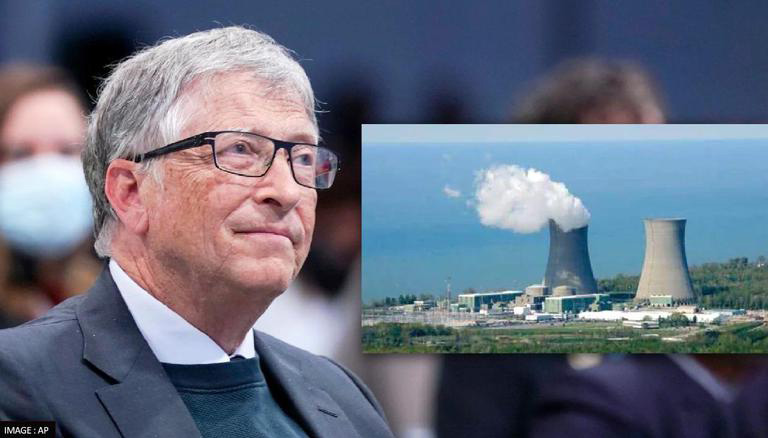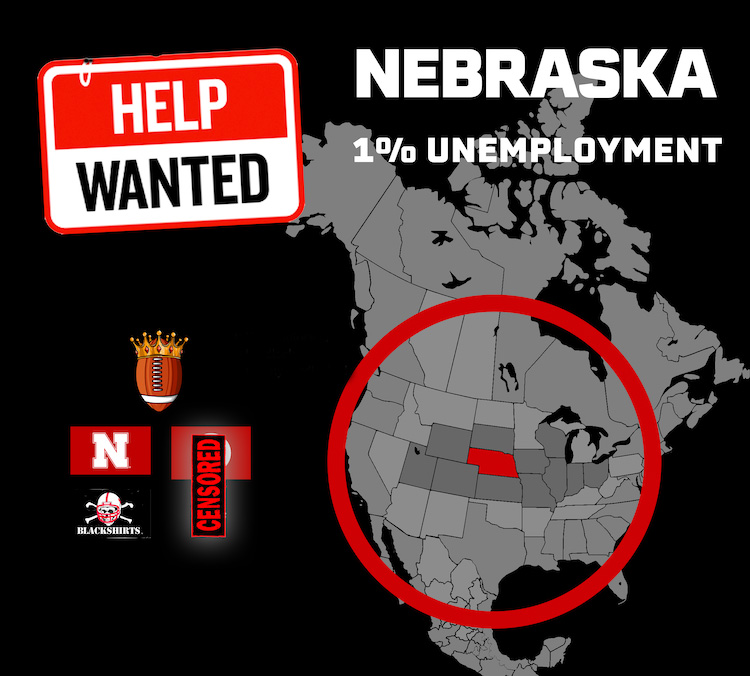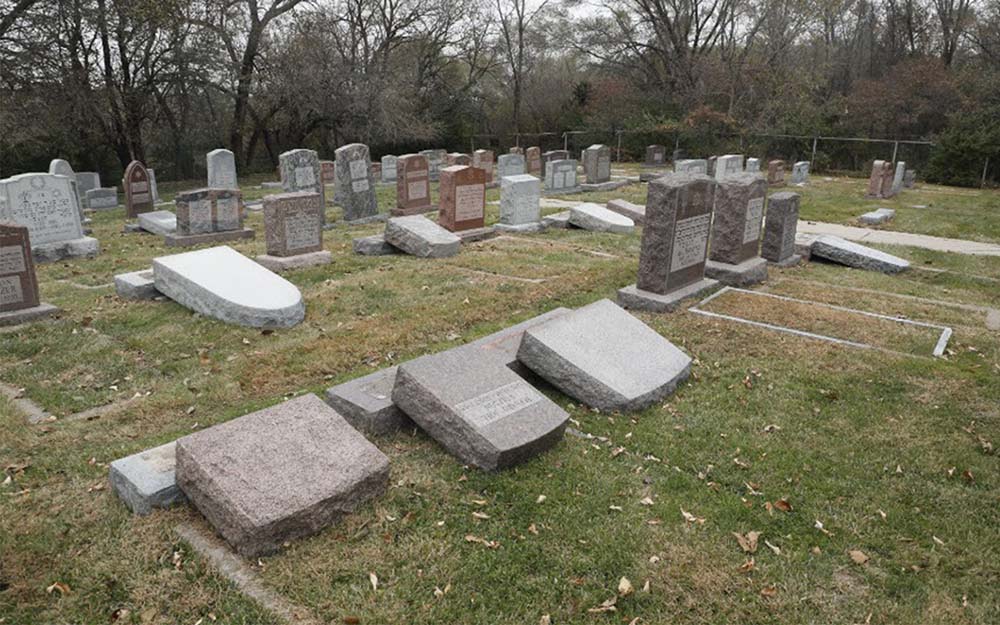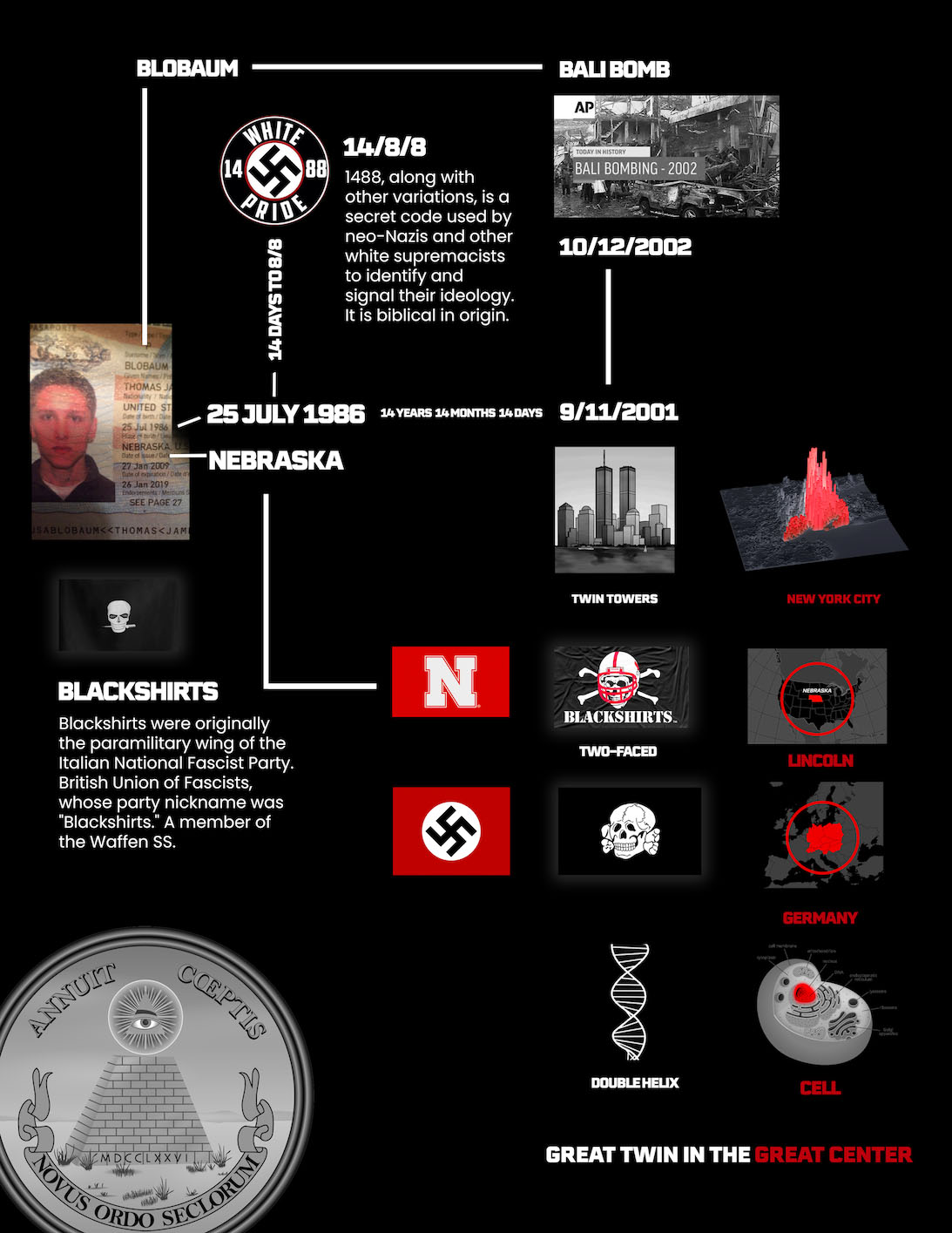Gates & Buffett Are Building A Fukushima Plant Upwind Of Nebraska

WYOMING– Power companies run by billionaire friends Bill Gates and Warren Buffett have chosen Wyoming to launch the first Natrium nuclear reactor project on the site of a retiring coal plant.
TerraPower, founded by Gates about 15 years ago, and power company PacifiCorp, owned by Warren Buffett’s Berkshire Hathaway, said on Wednesday that the exact site of the Natrium reactor demonstration plant was expected to be announced by the end of the year.
Small advanced reactors, which run on different fuels to traditional reactors, are regarded by some as a critical carbon-free technology than can supplement intermittent power sources like wind and solar as states strive to cut emissions that cause climate change. [See footnote]
“We think Natrium will be a game-changer for the energy industry,” Gates told a media conference to launch the project in Cheyenne, Wyoming.
“This is our fastest and clearest course to becoming carbon negative,” Wyoming’s governor, Mark Gordon, said. “Nuclear power is clearly a part of my all-of-the-above strategy for energy” in Wyoming, the country’s top coal-producing state.
The project features a 345 megawatt sodium-cooled fast reactor with molten salt-based energy storage that could boost the system’s power output to 500MW during peak power demand. TerraPower said last year that the plants would cost about $1bn.
Late last year the US energy department awarded TerraPower $80m in initial funding to demonstrate Natrium technology, and the department has committed additional funding in coming years subject to congressional appropriations.
Chris Levesque, TerraPower’s president and chief executive, said the demonstration plant would take about seven years to build.
“We need this kind of clean energy on the grid in the 2030s,” he told reporters.
Nuclear power experts have warned that advanced reactors could have higher risks than conventional ones. Fuel for many advanced reactors would have to be enriched at a much higher rate than conventional fuel, meaning the fuel supply chain could be an attractive target for militants looking to create a crude nuclear weapon, a recent report said.
Levesque said that the plants would reduce proliferation risks because they reduce overall nuclear waste.
Source: The Guardian
Comment with GitHub
Newsletter
Navel Posts
-

New Nebraska Blackshirts Design Proposed
There is a fertility crisis brewing and the University of Nebraska is connected. The Blackshirts at UNL are the Blackshirts of history...
-

-

-

-

-

-

-

-

Lincoln Man Behind Bars for Blackshirts Synagogue Graffiti Says Jewish Man Paid Him
LINCOLN – A 22-year-old Lincoln man convicted of a hate crime for spray-painting swastikas and racial epithets on a Lincoln synagogue,...
-

-

-

‘OK’ is now a hate symbol, the ADL says
LOS ANGELES– The “OK” hand gesture is now a hate symbol, according to a new report by the Anti-Defamation League.
-

-

-

Rogue Planet Could Bring End Of Days This Weekend, Numerologists Say
SPACE – Here’s to hoping that you made plans for an epic weekend, because it may be our last.
-

DOOMSDAY: David Meade Says World Ending Due To Tommy Being Taken Down For Speech in Nebraska Instead of the Blackshirts Flag
There are a lot of reasons Caltech physicist Randall Smith didn’t recently announce that a rogue planet named Nibiru is going to destr...
Politics Posts
-

-

-

-

New Nebraska Blackshirts Design Proposed
There is a fertility crisis brewing and the University of Nebraska is connected. The Blackshirts at UNL are the Blackshirts of history...
-

-

-

-

-

-

-

'Nazi Political Applications' Handed Out in Indiana on 8/8
INDIANA – Nazi political party applications were being handed out by men wearing Nazi flag armbands in Indiana this weekend, according...
-

-
-

-

-

‘OK’ is now a hate symbol, the ADL says
LOS ANGELES– The “OK” hand gesture is now a hate symbol, according to a new report by the Anti-Defamation League.
-

University Study Finds Fire Did Not Cause Tower 7 To Collapse On 9/11
MULTIPLE LOCATIONS– The fall of the 47-story World Trade Center Building 7 (WTC 7) in New York City late in the afternoon of September...
-

-

-

-

-

-

-

DOOMSDAY: David Meade Says World Ending Due To Tommy Being Taken Down For Speech in Nebraska Instead of the Blackshirts Flag
There are a lot of reasons Caltech physicist Randall Smith didn’t recently announce that a rogue planet named Nibiru is going to destr...
-

Senate Blocks Cowboy Day
WASHINGTON D.C.– Washington couldn’t even wrangle the votes to pass a resolution honoring the American cowboy.
Latest Posts
-

-

-

-

Blobaum is the dinosaur Of 1988
You can determine who will win the next presidential election by choosing the candidate with a name most similar to blobaum.
